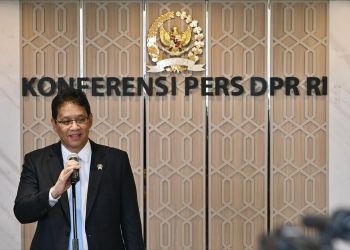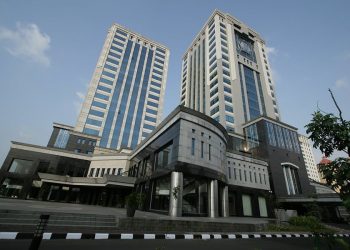Bandung, IndonesiaSentinel.com — The term “Dutch Disease” refers to an economic phenomenon that occurs when a country exploits and relies on a growing commodity, leading to the negligence in other important sectors. Dutch Disease occurs when a country discovers and exploits a valuable natural resource, leading to a surge in income from that resource. However, the influx of wealth harms other sectors of the economy, particularly manufacturing, by causing a rise in currency value and shifting focus away from industries that drive long-term growth.
The Origins of Dutch Disease
This term was first used in 1977 to describe the negative effects experienced by the Netherlands after discovering vast natural gas reserves in the 1960s. The discovery of natural gas in the Netherlands in 1959 brought enormous financial gains for the country.
However, the newfound wealth also brought unintended consequences. As gas exports surged, the Dutch guilder appreciated significantly, making Dutch exports more expensive and less competitive internationally. This led to a decline in the manufacturing and export sectors, which had previously been key contributors to economic stability.
The phenomenon became known as “Dutch Disease” in a 1977 article in The Economist, which highlighted how resource wealth had triggered economic challenges rather than benefits. Dutch Disease describes a scenario in which the success of one sector (usually commodities) leads to the decline of other sectors, especially manufacturing, due to shifts in exchange rates and domestic economic priorities.
How Dutch Disease Takes Effect
Dutch Disease involves a currency appreciation driven by a rapid inflow of foreign currency from resource exports. As the domestic currency strengthens, non-resource sectors, particularly manufacturing and agriculture, struggle to remain competitive in international markets. This results in deindustrialization and a long-term reliance on the commodity sector, which can make an economy vulnerable to fluctuations in global commodity prices.
Additionally, as revenues from resource extraction increase, governments and businesses may focus too heavily on that single sector, neglecting investments in broader economic development. In the worst cases, Dutch Disease can lead to economic stagnation and greater dependency on volatile commodity markets.
Countries Affected by Dutch Disease
1. Venezuela – Oil Dependency and Economic Downfall
Venezuela is a classic example of a country affected by Dutch Disease. For much of the 20th century, Venezuela was one of the wealthiest countries in Latin America, largely due to its vast oil reserves. However, as oil became the dominant sector, other industries, such as manufacturing and agriculture, were neglected.
By the early 2000s, Venezuela’s over-reliance on oil exports made its economy vulnerable to global oil price shocks. As prices fell in the 2010s, the country’s economy spiraled into a deep recession, with hyperinflation and widespread shortages of basic goods. The collapse of Venezuela’s economy serves as a cautionary tale of how Dutch Disease can contribute to a country’s economic downfall when diversification is ignored.
Who’s Accountable for the Collapse of Indonesia’s Middle Class?
2. Nauru – Phosphate Wealth to Economic Collapse
Nauru, a small island nation in the Pacific Ocean, provides another striking example of Dutch Disease. In the 20th century, Nauru became extraordinarily wealthy due to its rich phosphate deposits, which were extensively mined for decades. Phosphate, used in fertilizers, was in high demand, and Nauru’s economy grew rapidly as the country capitalized on this natural resource.
However, similar to what happened in Venezuela, Nauru’s dependence on phosphate extraction led to a neglect of other economic sectors. The island’s economy became overwhelmingly reliant on a single commodity. As the phosphate reserves began to deplete in the late 20th century, Nauru faced severe economic challenges. The depletion of its primary resource left the country without a diversified economic base, and its wealth rapidly diminished. By the 1990s, Nauru faced economic collapse, relying on international aid for survival.
Avoid Dutch Disease
Countries can mitigate the risks of Dutch Disease by diversifying their economies, investing in education and infrastructure, and implementing policies that strengthen sectors beyond natural resources. Norway, for example, has successfully managed its oil wealth by establishing a sovereign wealth fund, investing in a range of industries, and maintaining a competitive manufacturing sector. This approach has helped Norway avoid the economic pitfalls of resource dependency.
For countries rich in natural resources, avoiding Dutch Disease requires forward-thinking policies and a commitment to long-term, sustainable economic development. Without these safeguards, the allure of immediate wealth can lead to long-term economic instability.
(Raidi/Agung)


























